Regrettably, individuals cannot simply will themselves out of depression. It is imperative to be cognizant of certain telltale signs that may warrant seeking professional help. These signs encompass enduring feelings of profound sadness or an overwhelming sense of emptiness. People with depression may experience irritability, restlessness, anxiety, hopelessness, or a pervasive feeling of helplessness. A loss of interest in activities that were once a source of pleasure, along with low energy and persistent fatigue, are additional indicators. Difficulties in concentration, memory, and decision-making, as well as alterations in appetite, body weight, and sleep patterns, may also manifest. Physical symptoms such as headaches, digestive issues, body aches, and pain can be further indications that necessitate professional attention. It is vital to emphasize that experiencing depression does not imply personal weakness or mental instability. Depression is a genuine medical condition, which researchers predominantly attribute to overwhelming emotions, dissatisfaction, anger, and excessive desires for sensory gratification. This, in turn, disrupts the balance of certain brain chemicals known as neurotransmitters.
Neurotransmitters, including Norepinephrine, Serotonin, and Dopamine, play pivotal roles in regulating mood and affect the chemistry of depression. Norepinephrine, akin to a “fight or flight” response, influences heart rate and blood pressure during stressful situations. Serotonin, often dubbed the “feel-good” chemical, governs mood and overall well-being. Dopamine is instrumental in regulating emotions, memory, cognition, motivation, and reward. Imbalances in these neurotransmitters can significantly impact an individual’s mood and contribute to depression. While some individuals might attribute their depression to specific life events, it is not uncommon for those with depression to grapple with an inexplicable sense of despair. This is due to the intricate interplay of neurotransmitters in the brain, which may be disrupted even when external circumstances appear favorable.
Depression is multifaceted, and comprehension of its underlying brain chemistry can be valuable for medical and mental health professionals, as well as researchers and those living with depression. Notably, imbalances in neurotransmitters can result from factors such as the inadequate production of specific neurotransmitters, insufficient receptor sites to receive these neurotransmitters, their premature reabsorption by presynaptic cells, a deficiency in the building blocks of neurotransmitters, or scarcity of the enzymes required for neurotransmitter synthesis. Researchers continue to explore potential causes for these chemical imbalances, including cellular stress, as they strive to unravel the complexities of depression and enhance treatment strategies. However, a substantial challenge remains the lack of a consistent and precise method for measuring neurotransmitter levels.
Depending on the number and severity of symptoms, a depressive episode can be categorized as mild, moderate, or severe. These distinctions serve to gauge the impact of depression on an individual’s ability to engage in ordinary work and social activities. In cases of mild depression, individuals may encounter some challenges in maintaining their usual routines and social interactions but typically do not experience a complete cessation of functioning. Conversely, during severe depressive episodes, individuals often find it exceedingly difficult to carry on with social, work, or domestic responsibilities, and their capacity for engagement is significantly limited.
Depression encompasses a spectrum of manifestations, which can be classified into distinct subcategories, each characterized by specific symptoms and triggers. These subcategories include:
1. Postpartum Depression:
Postpartum depression affects a significant proportion of new mothers, with up to 80 percent experiencing what is commonly referred to as the “baby blues.” This condition is characterized by mood swings, feelings of sadness, and fatigue. Generally, these symptoms resolve within a week or two. The etiology of postpartum depression is linked to hormonal fluctuations following childbirth, sleep deprivation, and the challenges associated with caring for a newborn. However, if these symptoms persist beyond the initial weeks and intensify in severity, it may signify the development of a major depressive disorder with peripartum onset, more commonly known as postpartum depression. This condition is a cause for concern and necessitates professional evaluation and intervention.
2. Persistent Depressive Disorder:
A persistent depressive disorder, or recurrent depressive disorder, is characterized by recurring depressive episodes. During these episodes, individuals experience a persistent depressed mood, a loss of interest and pleasure in activities, and reduced energy for a minimum duration of two weeks. Additionally, those with this disorder often exhibit comorbid symptoms such as anxiety, disruptions in sleep and appetite, feelings of guilt or low self-worth, poor concentration, and symptoms that cannot be readily explained by a medical diagnosis.
3. Bipolar Affective Disorder:
Bipolar affective disorder is a form of depression marked by cycles of manic and depressive episodes, separated by periods of relatively normal mood. Manic episodes are hallmarked by elevated or irritable mood, increased activity levels, pressured speech, inflated self-esteem, and reduced need for sleep.
Common Symptoms Across Subcategories:
Both recurrent depressive disorder and bipolar affective disorder share common symptoms that include pervasive feelings of worthlessness and guilt, reduced concentration and indecisiveness, a diminished interest in previously enjoyed activities, preoccupation with thoughts of death or suicide, emotional instability, and marked changes in body weight. Children and adolescents may also experience low self-esteem, guilt, impaired concentration, and frequent school absences, while older adults may present with unexplained memory impairments, sleep disturbances, or social withdrawal, all of which can be indicative of underlying depression.
Severity Classification:
The severity of depression episodes is stratified based on the number and intensity of symptoms. Depressive episodes can be categorized as mild, moderate, or severe, depending on the extent of impairment in an individual’s ability to engage in typical work and social activities. A mild depressive episode may result in some difficulties in maintaining daily routines and interactions but generally does not lead to complete functional impairment. In contrast, during a severe depressive episode, individuals are significantly hampered in their capacity to participate in social, work, or domestic activities and may only be able to manage these responsibilities to a limited extent.
In an academic context, it is imperative to recognize the nuanced nature of depression and its various subcategories. Understanding these subtypes is essential for accurate diagnosis, treatment planning, and the provision of effective care for individuals grappling with depressive disorders. This comprehensive comprehension allows for the tailoring of interventions to address the specific needs and experiences of those affected by depression, ultimately enhancing their well-being and quality of life.
The root causes of depression are multifaceted, encompassing genetic predisposition, hormonal fluctuations, medical conditions, post-surgery reactions, and elevated stress levels. Emotional attachment to temporary material gains, coupled with the eventual loss of these possessions, can also trigger depression. Genetics, substance use history, brain chemistry imbalances, hormonal fluctuations, seasonal changes, and traumatic life events, such as loss of a loved one, trauma, abuse, chronic stress, and significant life changes (e.g., divorce or job loss), have all been linked to depression. Elevated cortisol levels during stressful and traumatic periods can disrupt neurotransmitter serotonin and contribute to depressive symptoms.
Depression arises from a complex interplay of social, psychological, and biological factors. Individuals who have experienced adverse life events, such as unemployment, bereavement, or psychological trauma, are more prone to developing depression. Importantly, depression can create a feedback loop, leading to additional stress and dysfunction, further deteriorating the individual’s life circumstances and exacerbating the depression itself. Moreover, there are intricate connections between depression and physical health; for instance, cardiovascular disease can contribute to depression and vice versa.
Depression is a condition influenced by a multitude of factors, encompassing brain chemistry, genetics, hormones, and a range of risk factors, including low self-esteem, anxiety disorder, borderline personality disorder, post-traumatic stress disorder, and a history of physical or sexual abuse, among others. Certain prescription medications can also play a role in depression onset. Therefore, understanding the diverse array of factors that contribute to depression is crucial in developing effective strategies for diagnosis and treatment.
Depression as a Lifestyle Problem:
Depression is rapidly becoming a common lifestyle issue, with symptoms such as anxiety, stress, and insomnia plaguing many. These seemingly everyday problems can escalate if left unaddressed. The fear of social stigma and a lack of support are major impediments to receiving proper treatment. Although there is no definitive clinical or medicinal cure for depression, there are strategies to manage its symptoms effectively. Notably, addressing the root causes of anxiety and depression can be an enlightening process that facilitates the discovery of one’s true nature.
The Burden of Depression:
Mental disorders, including depression, affect millions of people worldwide, irrespective of geographical location, socio-economic status, or physical health. Depression is the most prevalent of these disorders, constituting 99% of all mental illnesses. Major Depressive Disorder is encompassed within this category, alongside related mood disorders such as bipolar disorder, postpartum depression, post-traumatic stress syndrome, anxiety disorder, and suicidal tendencies. It is concerning that between 63% to 65% of people do not receive treatment for their mental disorders. This treatment gap arises from resource scarcity, an inadequate number of trained healthcare providers, and social stigma associated with mental health conditions. Inaccurate assessment further compounds this issue, with individuals often being misdiagnosed or undertreated.
Depression’s Escalating Global Burden:
A resolution passed by the World Health Assembly in May 2013 called for a comprehensive, coordinated response to mental disorders at the national level. Depression is a real and treatable illness, yet myths, misunderstandings, and stigma persist as barriers to effective treatment. Untreated depression can have dire consequences, potentially leading to life-threatening situations. Prolonged or chronic depression can significantly affect emotional and physical health, potentially resulting in suicide. Furthermore, untreated depression can lead to various complications, including substance abuse, physical health problems, and social and occupational difficulties.
Etiology of Depression:
The causes of depression are multifactorial and complex, influenced by social, psychological, and biological factors. Adverse life events, such as unemployment, bereavement, and psychological trauma, can increase the risk of depression. Conversely, depression can lead to additional stress and dysfunction, exacerbating the individual’s circumstances. There is no single cause of depression, but factors such as brain chemistry, hormones, genetics, low self-esteem, and past trauma are implicated.
Indeed, it is an established fact that an excessive pursuit of material gain, often characterized by the relentless accumulation of wealth and possessions, can precipitate stress and frustration. This phenomenon is attributed to several interconnected psychological and sociocultural factors. When individuals fixate on materialistic aspirations as the primary source of happiness and well-being, they become susceptible to emotional distress and, in some cases, depression. Here’s a more elaborate discussion of this concept:
• Materialism and Its Consequences: Materialism, in the context of consumer culture, involves the prioritization of material possessions, status, and wealth as markers of success and fulfillment. The prevailing belief is that acquiring more, whether it be possessions, money, or social status, will lead to greater life satisfaction. This relentless pursuit of material gain can result in an unending cycle of desire and consumption, where individuals are never content with what they have, always seeking more.
• Emotional Attachment and Loss: Emotional attachment to material possessions is a common occurrence. Over time, individuals may develop strong emotional connections to certain items, often ascribing sentimental or symbolic value to them. When these possessions are lost, damaged, or no longer accessible, it can lead to a profound sense of loss. This emotional attachment, coupled with the failure to meet materialistic aspirations, can trigger feelings of emptiness and sadness.
• The Void of Unfulfilled Desires: Materialistic desires are typically insatiable. As individuals acquire one possession, they often quickly transition to desiring the next, creating a perpetual void of unfulfilled desires. This constant striving for more can lead to a sense of inadequacy and frustration, as there is no end to the pursuit, and contentment remains elusive.
The relentless quest for material gain can generate chronic stress and frustration. Individuals may experience heightened anxiety and pressure to attain societal standards of success, often defined by material wealth. The fear of not measuring up to these standards can be overwhelming, contributing to stress-related disorders.
When materialistic pursuits become the primary source of one’s sense of self-worth and happiness, any loss or failure in these pursuits can be devastating. The inability to achieve materialistic goals, coupled with the loss of emotionally significant possessions, can lead to the onset of depression. Depression serves as a psychological response to the perceived inadequacy of one’s materialistic desires, resulting in feelings of sadness, hopelessness, and despair.
In conclusion, the pursuit of material gain, when driven to extremes, can indeed lead to stress, frustration, and even depression. By recognizing the potential pitfalls of materialism and striving for a more balanced and holistic approach to well-being, individuals can foster greater contentment and mental health in their lives.
Diagnosis and Treatment:
Depression can manifest in different forms and severities, with mild, moderate, and severe episodes. A key distinction exists between depression with and without a history of manic episodes. Proper diagnosis is crucial to tailor effective treatment strategies. Clinical depression is treatable, with options ranging from psychotherapy and lifestyle modifications to medication. Effective treatment methods include behavioral activation, cognitive behavioral therapy (CBT), interpersonal psychotherapy (IPT), and antidepressant medication. In severe cases, electroconvulsive therapy (ECT) may be employed when other treatments prove ineffective.
Diagnosis and treatment of clinical depression are critical aspects of addressing this mental health condition. Various therapeutic interventions and approaches are available to manage depression, regardless of its severity. Below, we’ll discuss the diagnosis and treatment of depression in an academic standard:
Diagnosis:
Clinical depression, or major depressive disorder (MDD), is diagnosed based on a comprehensive evaluation of a patient’s mental and emotional state. Diagnosing depression typically involves the following steps:
Clinical Assessment: Mental health professionals, such as psychiatrists, clinical psychologists, or licensed therapists, conduct a clinical assessment. This involves detailed interviews and discussions with the patient to understand their symptoms, history, and emotional state.
Diagnostic Criteria: Depression is diagnosed according to established diagnostic criteria, often based on the Diagnostic and Statistical Manual of Mental Disorders (DSM-5) or the International Classification of Diseases (ICD-10). These criteria consider the presence, duration, and severity of depressive symptoms.
Symptom Evaluation: The severity and variety of depressive symptoms are assessed. These symptoms can include persistent sadness, loss of interest in activities, changes in appetite and sleep, feelings of guilt or worthlessness, difficulty concentrating, and thoughts of death or suicide.
Rule Out Other Conditions: It’s essential to rule out other medical or psychiatric conditions that may mimic depressive symptoms. This includes screening for conditions like bipolar disorder, anxiety disorders, or physical health problems that can influence mood.
Treatment:
Effective treatments are available for clinical depression, tailored to its severity. Treatment options include both preventive and clinical methods:
Preventive Measures:
Preventive measures aim to reduce the risk of developing depression and may be beneficial for individuals at risk. These measures include:
• Proper Diet Plan:
Maintaining a proper diet is essential for both physical and mental well-being. The connection between nutrition and mental health is well-established, and a balanced diet can contribute to improved mood, reduced risk of mental health disorders, and enhanced overall cognitive function. Food grown with untampered seeds, food with originality on its core of DNA (universal intelligence), clean food free from all types of meek, terror, stress, bloodshed and depression, or devoid of any types of fast foods keeps our physical as well as mental health fine. Here’s how a proper diet can positively impact mental health:
Nutrient-Rich Foods: A diet rich in nutrients, such as vitamins, minerals, and antioxidants, supports optimal brain function. These nutrients are essential for neurotransmitter production and other key processes that influence mood.
Complex Carbohydrates: Whole grains and complex carbohydrates can help stabilize blood sugar levels, preventing energy crashes and mood swings.
Plant based Proteins: Amino acids derived from proteins are used to synthesize neurotransmitters like serotonin and dopamine, which affect mood regulation. Sources of lean protein include green leaves, beans, and tofu.
Fruits and Vegetables: These are rich in antioxidants that help protect the brain from oxidative stress. They also provide essential vitamins and minerals for overall well-being.
Hydration: Dehydration can lead to cognitive impairment, affecting focus and mood. Staying adequately hydrated is crucial for mental clarity.
Moderate Caffeine and Sugar Intake: Excessive caffeine and sugar consumption can lead to energy crashes and exacerbate mood swings. Consuming these in moderation is key.
Limit Processed and Fast Foods: Processed foods often contain high levels of unhealthy fats, sugars, and additives. Fast food tends to lack the nutrients necessary for optimal brain function. Avoiding or minimizing these can have a positive impact.
Food Sources with Positive Vibes: Individuals should prefer to consume foods with a focus on ethical, humane, and environmentally friendly choices. Reducing the consumption of foods associated with cruelty and environmental harm can positively impact one’s mental well-being.
Balanced Meals: Consistently eating balanced meals helps stabilize blood sugar levels and prevents mood swings. Skipping meals can lead to irritability and decreased energy levels.
It’s essential to recognize that while diet plays a significant role in mental health, it is not a substitute for professional treatment in cases of clinical depression or other mental health conditions. A holistic approach that includes dietary improvements, physical activity, stress management, and appropriate treatment interventions offers the best chance for maintaining good mental health. Consulting with a healthcare professional or a registered dietitian can provide personalized guidance on how to incorporate a balanced diet into your lifestyle to support both your physical and mental well-being.
• Meditation and Yoga:
Mantra Meditation and yoga can help individuals manage stress, improve emotional regulation, and enhance overall well-being.
• Search for the Ultimate Truth:
Philosophical or spiritual exploration can provide individuals with a sense of purpose and fulfillment, reducing susceptibility to depression.
From a Vedic perspective, the search for the ultimate truth is deeply intertwined with spiritual and philosophical exploration. Vedic philosophy, originating from ancient India and encompassing texts like the Vedas, Upanishads, and Bhagavad Gita, provides profound insights into human nature, the universe, and the quest for truth. This perspective suggests that by delving into these teachings and adopting certain practices, individuals can find a sense of purpose and fulfillment, which may help reduce susceptibility to depression. Here are some key aspects of this Vedic perspective:
Self-Realization: Vedic philosophy emphasizes the journey of self-realization. It encourages individuals to look within themselves, exploring their true nature and understanding their connection to the cosmos. This self-exploration can lead to a profound sense of purpose and inner peace.
Meditation and Contemplation: Vedic traditions promote meditation and contemplation as powerful tools for connecting with the ultimate truth. Through these practices, individuals can transcend the surface-level distractions of life and experience a deeper reality. Regular meditation is believed to calm the mind, reduce stress, and enhance overall well-being.
Detachment from Materialism: Vedic philosophy teaches the value of detachment from material possessions and desires. By focusing on the eternal and unchanging aspects of existence, rather than fleeting material gains, individuals can find lasting contentment.
Pursuit of Dharma: Dharma, or one’s duty and ethical path, is central in Vedic thought. By aligning one’s actions and life choices with their dharma, individuals can experience a sense of fulfillment and meaning in their lives.
Bhakti Yoga: Bhakti yoga, the path of devotion, encourages individuals to cultivate a deep and loving relationship with the divine, The Absolute Beauty. This path can offer solace, purpose, and emotional stability, which are essential in countering depression.
Mind-Body Connection: Vedic practices often emphasize the profound connection between the mind and body. A healthy body is seen as a vessel for spiritual growth, and holistic well-being is considered crucial.
Community and Support: Varnashram based Vedic communities often provide strong support systems. Associating with like-minded individuals and spiritual guides can help individuals on their quest for truth and emotional well-being.
In summary, Vedic philosophy offers profound insights into the nature of existence and human consciousness, spiritual and philosophical exploration are valuable component of mental health and well-being. From a Vedic perspective, the search for the ultimate truth is a spiritual and philosophical journey that can provide individuals with a sense of purpose and fulfillment. It encourages practices like meditation, self-realization, and living in alignment with one’s dharma. These practices, when integrated into one’s life, can contribute to emotional well-being and may reduce susceptibility to depression. However, it’s important to maintain a balanced approach and seek professional help when necessary.
• Stress Management:
Developing healthy stress management strategies, such as regular exercise, good sleep hygiene, and relaxation techniques, can mitigate the impact of stress on mental health.
Clinical Treatment Methods:
Clinical treatments are aimed at addressing existing depression. They include:
1. Herbal Medicine:
Herbal remedies have been used for centuries to promote well-being and address various health issues, including stress, anxiety, and mood disorders. Here’s a closer look at some herbal medicines that are believed to have stress-reducing and mood-stabilizing properties:
1.1. Ashwagandha: Ashwagandha, also known as Indian ginseng or Withania somnifera, is an adaptogenic herb that is traditionally used in Ayurvedic medicine.
It contains active compounds like steroidal lactones, saponins, alkaloids, and withanolides, which are believed to have antidepressant, anti-inflammatory, and anti-anxiety properties. Ashwagandha is thought to help reduce stress caused by emotional and physical fatigue, balance mood swings, and enhance mental alertness, focus, and concentration. It also assists in restoring normal physiological functioning. Ashwagandha can be consumed in various forms, such as powdered form or liquid extract.
1.2. Brahmi: Brahmi (Bacopa monnieri) is a small perennial creeping herb with a long-standing reputation for its stress-relieving properties.
It acts as an adaptogen, helping the body adapt to new or stressful situations. Brahmi is believed to increase serotonin levels in the brain, promoting a calm mind and providing relief from anxiety and nervousness.
1.3. Jatamansi (Spikenard): Jatamansi is a perennial herb used in Ayurveda for its medicinal properties. It is known for its anti-depressant, anti-stress, and anti-fatigue properties. The roots of Jatamansi are used in Ayurvedic medicine to provide therapeutic effects for mood swings and stress disorders. Jatamansi is thought to help channelize the energies of the mind in a positive direction, potentially reducing negative thoughts.
1.4. Pudina (Peppermint): Pudina, or peppermint, has a long history of use in traditional medicine to address nervous system disorders. It contains menthol, which is believed to have a calming effect on frazzled nerves and provide a cooling sensation. Pudina is rich in vitamins A and C, minerals like magnesium, manganese, calcium, iron, folate, copper, and potassium. Menthol in Pudina may help with insomnia by promoting a calm and peaceful state of mind.
1.5. Maca (Peruvian Ginseng): Maca, also known as Peruvian ginseng, is a nutrient-rich herb that is believed to help reduce anxiety and increase stamina. It contains vitamins, amino acids, various minerals, and phytonutrients. Maca is known for its adaptogenic properties and is thought to help with hormone and neurotransmitter production, which may play a role in managing anxiety. It can also serve as a natural energizer to combat lethargy.
While these herbal remedies have been traditionally used for their potential benefits in managing stress and mood, it’s important to note that individual responses to herbal treatments may vary. Consulting with a healthcare provider or herbal medicine expert is advisable before incorporating these remedies into your healthcare routine. Additionally, herbal supplements should be used with caution, and any potential interactions with other medications should be discussed with a healthcare professional.
2. Yoga:
Yoga, when practiced as an adjunct therapy for depression, offers a holistic approach to improving mental and emotional well-being. It combines physical postures (asanas), breathing techniques (pranayama), and meditation to address the symptoms of depression and reduce its impact. Here’s an overview of how yoga affects depression:
Stress Reduction: Yoga is known for its stress-reducing benefits. Through the practice of asanas and pranayama, individuals can experience reduced levels of stress. Deep breathing and focused movements help calm the nervous system, leading to lower stress levels.
Improvement in Mood: Yoga has been shown to help improve mood and increase feelings of relaxation. The gentle, fluid nature of yoga postures and the emphasis on positive visualization can contribute to an enhanced sense of well-being.
Enhanced Serotonin Production: Yoga can have a positive impact on serotonin production, a neurotransmitter associated with mood regulation. This may be especially valuable for individuals with depression, as they often have lower serotonin levels.
Reduction of Anxiety: The combination of breath control (pranayama) and meditation in yoga can help individuals manage anxiety, one of the common symptoms associated with depression.
Heart Rate Variability (HRV) Improvement: Yoga can increase HRV, indicating a shift from the stress response to the relaxation response in the body. A higher HRV suggests better self-monitoring and adaptation to stress.
Pain Tolerance Increase: Some studies suggest that practicing yoga can increase pain tolerance. Individuals with depression often experience physical symptoms, and this may help alleviate some of the discomfort associated with the condition.
Enhancement of Concentration: Yoga promotes mindfulness and concentration. This is particularly beneficial for individuals who struggle with difficulty concentrating, a common symptom of depression.
Yoga offers a variety of styles and approaches, allowing individuals to choose the practice that best suits their needs and preferences. Some of the well-known styles include Hatha, Vinyasa, Bikram, Ashtanga, and more. Each style offers unique benefits, and individuals can explore different practices to find the one that resonates with them.
The benefits of yoga for depression have been supported by scientific research, with studies using randomized controlled trials to verify its effectiveness. Yoga is a complementary therapy that can be safely incorporated into treatment plans, either as a standalone practice or in combination with other forms of treatment.
However, it’s crucial to practice yoga under the guidance of qualified instructors, especially if you’re new to yoga or dealing with depression. Instructors can provide personalized guidance and ensure that you perform poses safely and effectively.
In conclusion, yoga is a valuable adjunct therapy for depression. It offers a holistic approach that addresses both the physical and emotional aspects of the condition, contributing to stress reduction, mood improvement, and overall well-being. While yoga can be challenging for beginners, it is generally safe and beneficial when practiced properly, offering individuals a means to manage their symptoms and work towards recovery.
3. Cognitive Behavioral Therapy (CBT):
CBT is a widely recognized psychotherapeutic approach for depression. It helps individuals identify and change negative thought patterns and behaviors contributing to their depressive symptoms.
4. Interpersonal Psychotherapy (IPT):
IPT focuses on improving interpersonal relationships and communication. It can be effective in treating depression, especially when relationship issues are central to the condition.
5. Antidepressant Medication:
For moderate to severe depression, healthcare professionals may prescribe medication. Selective Serotonin Reuptake Inhibitors (SSRIs) and Tricyclic Antidepressants (TCAs) are commonly used antidepressants.
6. Electroconvulsive Therapy (ECT):
ECT is considered for severe cases of depression that have not responded to other treatments. It involves controlled electrical currents passed through the brain and is administered under anesthesia.
Conclusion:
Depression is a global public health challenge that warrants comprehensive attention. It is essential to demystify depression, distinguish it from transient sadness, and acknowledge its multifaceted nature. An integrated approach that encompasses psychotherapy, medication, lifestyle adjustments, and prevention strategies is crucial for effectively addressing this widespread mental health issue. By fostering greater awareness and understanding, we can reduce the stigma surrounding depression and provide individuals with the support they need to manage and overcome this debilitating condition.
Hare Krishna.
Views: 56

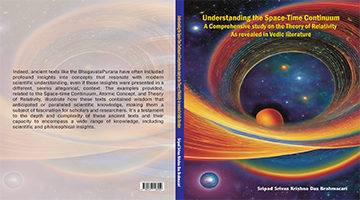
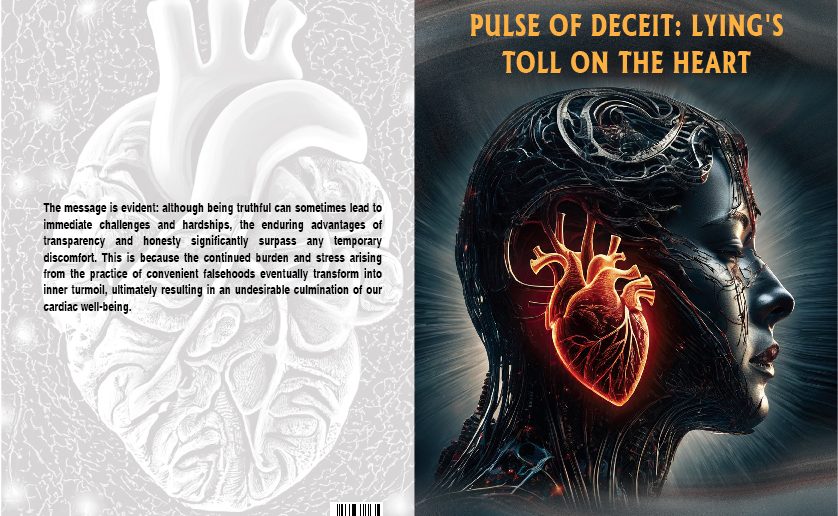
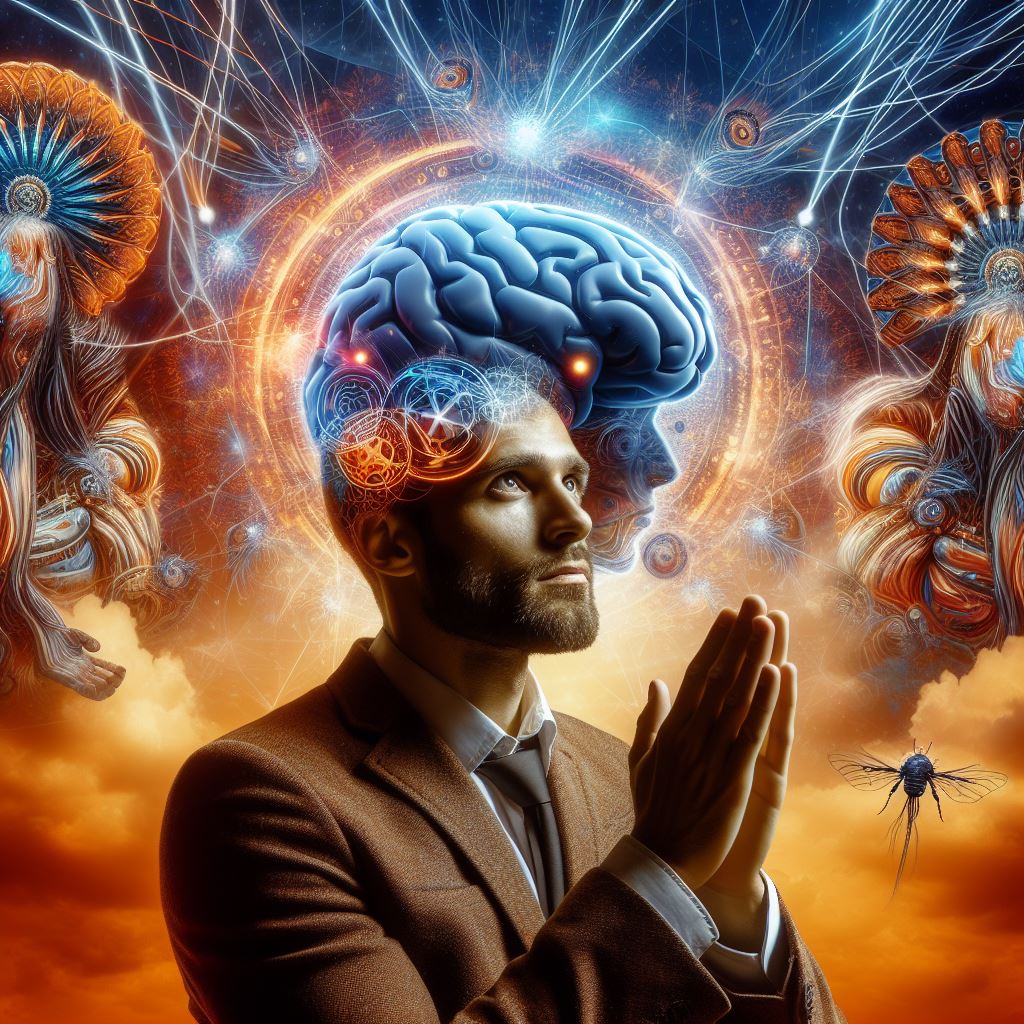









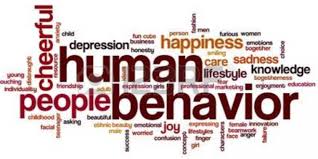
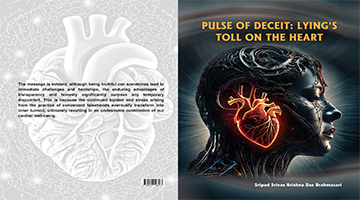








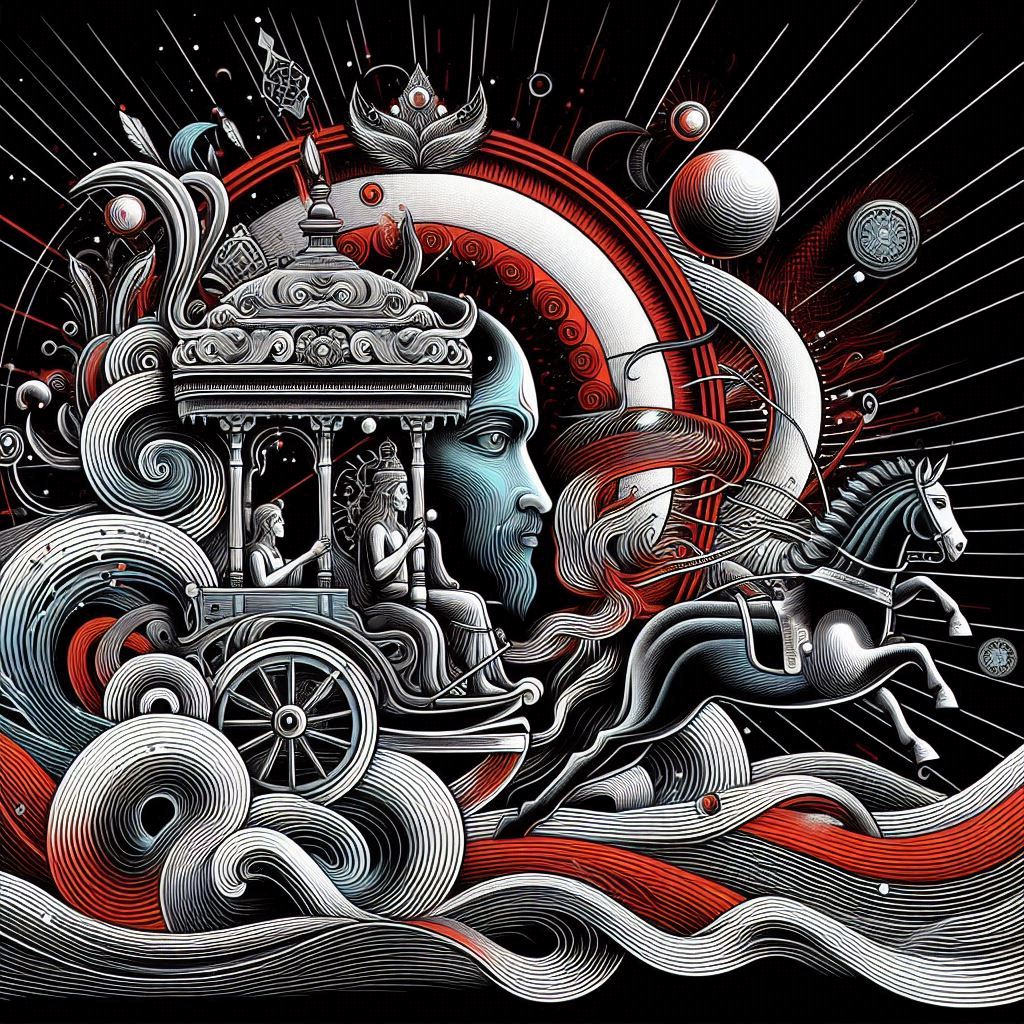








Origin of Science
The Existence of the Soul: Exploring Neuroscience, Quantum Physics and Vedic Philosophy
Temporal Relativity in Vedic Literature: An Interdisciplinary Analysis of Time Dilation Narratives
Acharya Kaṇāda: The Ancient Sage Who Discovered the Atom
Evidence of Vedic Sanātana Hinduism as a Global Dharma
Perception of Quantum Gravity and Field Theory in the Vedas
String Theory as Mentioned in Veda
Sanskrit’s Role in Advancing AI: A Comprehensive Study
The Vedic Model of the Mind: A Contemporary Exploration
Vedic Contributions to Geometry: Unveiling the Origins of Mathematics
Matter and Consciousness in Achintya Bhedābheda: Bridging with Quantum Physics
A Comprehensive Study of Aeroplanes and Aviation in Vedic Literature
Hydrology and the Water Cycle in Vedic Scriptures